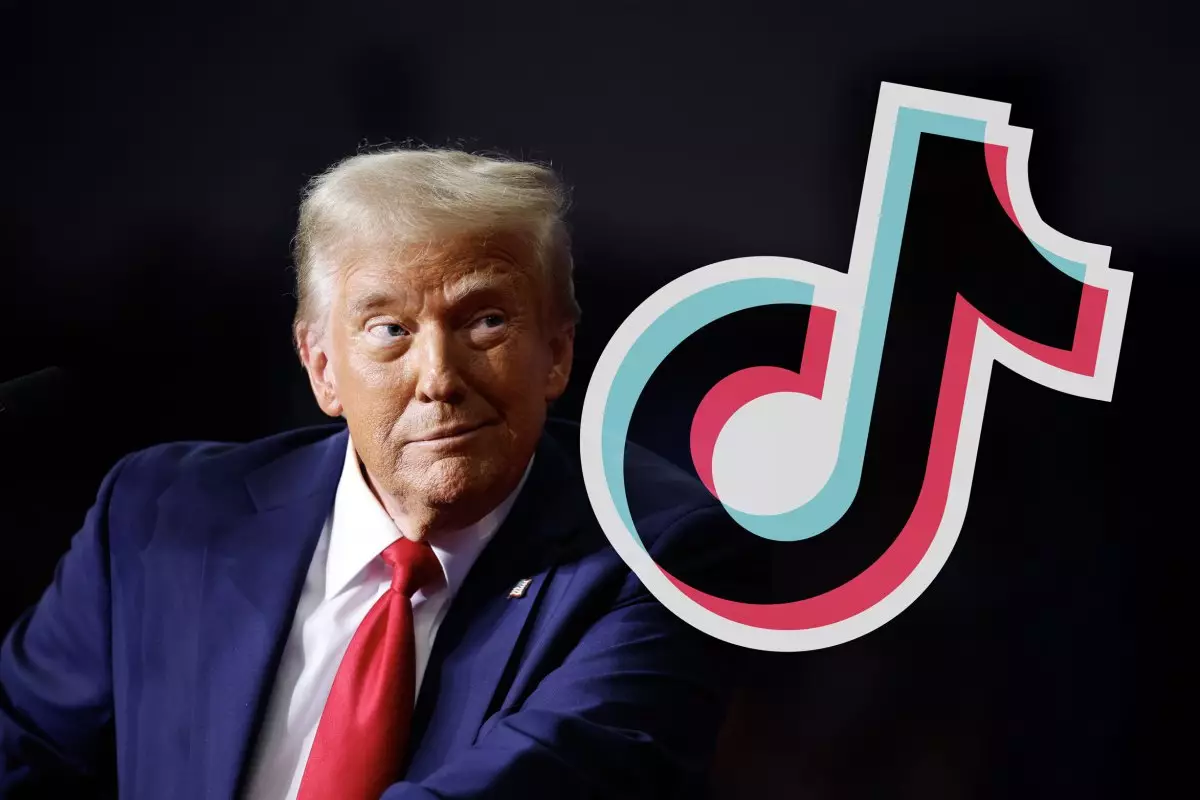In a recent surprising twist in the saga surrounding TikTok, President Donald Trump has taken decisive action by extending the deadline for a ban on the popular social media platform by an additional 75 days. Through a post on Truth Social, Trump expressed his administration’s commitment to negotiate a deal that would preserve TikTok’s future in the United States, asserting that tremendous progress has been made thus far. This announcement, which comes just a day before the original ban was set to be enacted, reinforces the volatile relationship between U.S. policymakers and the Chinese-based application, owned by ByteDance.
The TikTok debacle isn’t merely about national security concerns; it’s emblematic of broader strategic tensions between the United States and China. With the stakes higher than ever, the extension serves as a strategic pause, allowing time for further negotiations. There’s an air of complexity surrounding the situation, as Trump seeks not just to negotiate terms but also to preserve the economic and cultural phenomenon that TikTok represents in the American landscape.
Evolving Negotiations and Deal-Making
Trump’s extension is notable as it marks the second time he has pushed back the deadline for the TikTok ban, highlighting an evolving negotiation strategy. Initially, due to a law instated by his predecessor, Joe Biden, ByteDance was required to divest from its U.S. operations by January 19. By singling out investors such as Oracle, Blackstone, and Andréessen Horowitz as key players in the ongoing negotiations, the administration illustrates its intention to leverage significant American investment for a deal that not only meets national security concerns but also curtails growing public discontent around stringent app bans.
In a climate where TikTok faces scrutiny over data security, the urgency of these negotiations cannot be understated. Notably, despite attempting to satiate U.S. concerns, ByteDance has displayed reluctance to diminish its stake in TikTok, creating an impediment to meeting the regulatory demands set forth as part of the ban law. This backdrop of hesitation illustrates the challenge of balancing entrepreneurial interests with national security, making the upcoming negotiations all the more critical.
The Tariff Tangle
Interestingly, this development follows an earlier announcement from Trump imposing remarkable tariffs—34%—on Chinese imports, establishing a tough economic stance against what he perceives as unfair trade practices. This dual approach raises questions about Trump’s economic strategies. While attempting to negotiate a deal for TikTok’s future, he simultaneously reveals an inclination toward sustaining economic pressure on China. His proclamation regarding the necessity of tariffs as a tool of economic leverage underscores a blend of diplomacy and economic warfare in play.
In this fluid environment, the Chinese government’s approval would be paramount before any final agreement is reached. It remains to be seen how China will retaliate or respond to these unfolding events, especially in light of recent tariffs announced by their government against U.S. products. The interplay between tariffs and trade discussions will undoubtedly shape negotiations moving forward.
A Call for Strategic Engagement
As Trump pushes for a resolution that benefits both American interests and international relations, he emphasizes a desire for good faith engagement with China. Significantly, this approach represents a departure from a purely confrontational stance. It illustrates the delicate balance of maintaining national security while also nurturing commercial relations that benefit American consumers and businesses.
Moreover, the reactions elicited by this attempt to negotiate with China go beyond policy—they resonate with public sentiment. How Americans view TikTok affects broader conversations about data privacy, censorship, and surveillance, ultimately influencing geopolitical discourse. Trump’s insistence on keeping TikTok running encapsulates a recognition that popular culture, social media, and international economics are inextricably tied.
In this complex scenario, the extension of the TikTok deadline signifies not only a momentary reprieve for the platform but also highlights the intricate web of trade, technology, and diplomacy within a rapidly changing global landscape.

